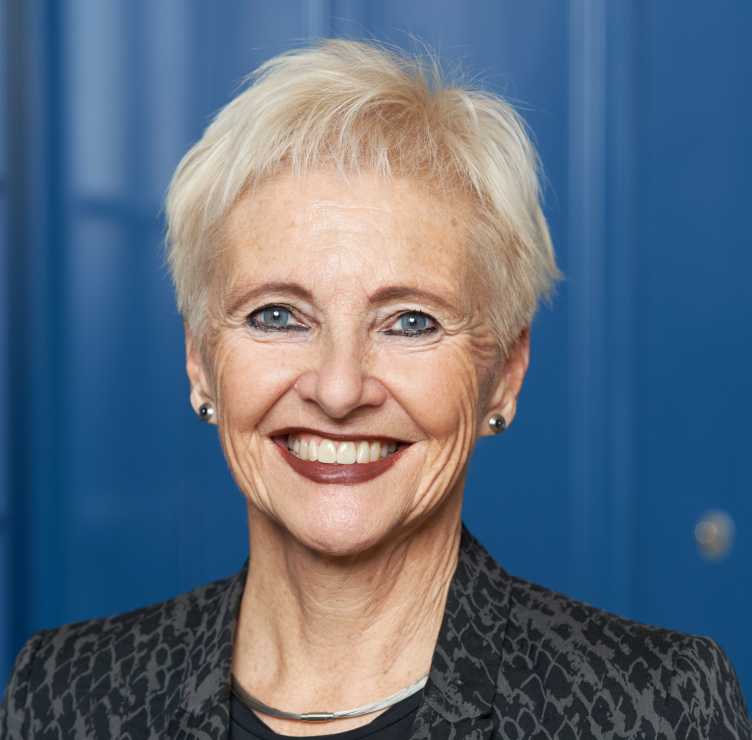"We see more complex linguistic biographies"
The Language Center of the University of Zurich and ETH Zurich is celebrating its 20-year anniversary. In this interview, director Sabina Schaffner takes stock and explains how attitudes towards foreign language learning have changed.


Let’s start with a provocative question. Why should we still bother to learn foreign languages, when there is such good translation software out there such as DeepL, and even real-time translation glasses as recently presented by Google?
Sabina Schaffner: It’s a legitimate question. Indeed, for purely functional language use, we don’t really need lessons any more: organizing trips, booking hotels, asking for directions or ordering food can all be done with the help of a translation tool. But what continues to make language learning attractive and cannot be replaced by a tool is the direct personal contact with people, the linguistic exchange which brings another quality of comprehension and opens up access to other cultural phenomena.
As far as machine translation goes, we have to integrate such tools into the language classroom, they’re a fact of life! In higher-level English courses, for example, we explore the benefits but also the limits of online translation tools such as DeepL.
An anniversary is a good opportunity to reflect on past achievements. What were the Language Center’s most important developments?
In line with developments taking place across UZH and ETH, we’ve substantially increased the range of language learning options. We started offering tailored courses such as academic writing and workplace communication back in 2015. In 2017, a second self-access center was established at Hönggerberg. At the two self-access centers, we provide learning activities such as book clubs, film evenings or virtual tours of European museums.
We’re continuing to grow: the number of language courses is up around 40 percent on 2007, and some 10,500 people take part in our activities overall. In addition to UZH and ETH members, the Language Center is today also open to alumni and members of the Zurich University of Teacher Education and the Zurich University of the Arts.
Last but not least, with specific intensive and semester courses in German as a foreign language, the Language Center has been playing a significant part in integrating refugees since 2019, now students from Ukraine in particular.
“What continues to make language learning attractive is the direct personal contact with people.”Sabina Schaffner
What changes have you seen in the language skills of your target groups?
In general, Swiss students especially are much better at English, while their mastery of French is unfortunately rather shaky even after years of lessons up to Matura level. We also see more complex linguistic biographies – many of our students grew up in multilingual environments, but don’t necessarily speak or write all of their mother tongues equally well. In addition, it must be said that language skills on the whole, especially writing skills, have declined in recent years.
Have you noticed any change in attitudes towards learning languages?
Thanks to globalization, acquiring or improving language skills is now an essential part of a university education. But perhaps because awareness of foreign languages is now so ubiquitous, some people forget that learning a language requires a lot of hard work and can’t just be picked up along the way.
What language skills do university teachers or researchers need nowadays?
In addition to German, English is a must at the Zurich universities – both for publishing research and for teaching on courses with an international outlook. But this dominance of English has some disadvantages and presents new challenges.
“Some people forget that learning a language requires a lot of hard work and can’t just be picked up along the way.”Sabina Schaffner
Could you be more specific?
For example, English is not always the most appropriate language to use to discuss some research topics or disciplines, because there’s a link between the language we speak and how we think. So if we discuss or research German philosophy in English, for example, we risk losing something. Most publications worldwide are written in English by non-native speakers. But to be able to really get to grips with a topic and conduct in-depth analyses, researchers need a very high level of academic English as well as knowledge of subject-specific terminology. This poses a challenge for the Language Center – we have to help our students assess the level and type of skills required in different contexts.
But English is still the lingua franca, isn’t it?
In higher education, the gap between English and other potential linguae francae such as Spanish or Russian will remain large for a long time to come. With Russian, for example, we’ll see whether political events have an influence on its use.
What about Mandarin Chinese? Will it compete with English in the future?
I doubt it. There is currently no evidence of developments in this direction.
What new formats will the Language Center offer in the future?
We’re planning a new online course for 2023, “Survival German” for non-German speakers interested in studying in Zurich. In the future, we also want to ramp up project-focused learning, in which participants of a language course build a website or write a blog together, for example. This type of course could be offered as part of a virtual international classroom where students from several language centers in different countries work together. We’re also thinking of adding more languages to our repertoire, for example Turkish.
Language Center of UZH and ETH Zurich – Facts and Figures
- The center runs around 540 language courses a year.
- Last year, the self-access center on the City Campus had 3,802 visits.
- 10,500 people take part in courses, the majority of whom are Bachelor’s or Master’s students, followed by doctoral candidates.
- German as a foreign language is the most in-demand course, followed by English, Spanish, French and Italian.
- In the 2022 Fall Semester, the Language Center is offering Ukrainian for beginners.
Follow the Language Center on Instagram and test your language skills in a quiz: external page www.instagram.com/sprachenzentrum.uzh.eth/
external page Find out more about the history of the Language Center.
Always up to date
Would you like to always receive the most important internal information and news from ETH Zurich? Then subscribe to the "internal news" newsletter and visit Staffnet, the information portal for ETH employees.
Comments
No comments yet